CORPORATE ACTION: Aldi
UK Refill Coalition Launches Aldi Pilot For In-Store Refill System
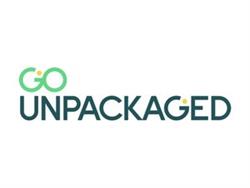
The UK Refill Coalition has launched a pilot refill scheme at Aldi UK’s Solihull, Birmingham store. Part of the coalition’s drive against single-use packaging, the refill solution is designed for important food staples and household products, including cleaning and personal care. Aside from the in-store refill system, the coalition’s campaign against single-use packaging also includes a tareless weighing system and dispenser for liquid products, and a home delivery refill solution for bulk orders.[Image Credit: © Unpackaged Systems Ltd]
TerraCycle Helps Aldi Launch Blister Pack Recycling In UK
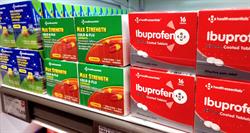 Aldi is collaborating with TerraCycle to test a recycling program for blister packs of the retailer’s private label medicines in the UK. Running nationally, the program will encourage consumers to recycle empty medicine packaging made from plastic and aluminum foil. TerraCycle will recycle the waste into raw material that can be used in making new products, including nuts and bolts from aluminum and waste bins from the plastic.[Image Credit: © Aldi ]
Aldi is collaborating with TerraCycle to test a recycling program for blister packs of the retailer’s private label medicines in the UK. Running nationally, the program will encourage consumers to recycle empty medicine packaging made from plastic and aluminum foil. TerraCycle will recycle the waste into raw material that can be used in making new products, including nuts and bolts from aluminum and waste bins from the plastic.[Image Credit: © Aldi ]
CORPORATE ACTION: Amazon
Amazon Installs First Automated Fulfillment Center Using Paper Packaging Solutions
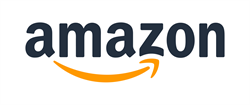 Amazon has installed an automated fulfillment center in Euclid, Ohio, designed to replace plastic delivery packaging with paper packaging. Part of the online retailer’s multiyear effort to transition US fulfillment centers to paper packaging, the paper solutions will enable customers to recycle at home. Solutions being implemented by Amazon include transitioning plastic air pillows to paper filler and redesigning machines to produce paper bags.[Image Credit: © Amazon.com, Inc.]
Amazon has installed an automated fulfillment center in Euclid, Ohio, designed to replace plastic delivery packaging with paper packaging. Part of the online retailer’s multiyear effort to transition US fulfillment centers to paper packaging, the paper solutions will enable customers to recycle at home. Solutions being implemented by Amazon include transitioning plastic air pillows to paper filler and redesigning machines to produce paper bags.[Image Credit: © Amazon.com, Inc.]
CORPORATE ACTION: Coca-Cola
Coca-Cola Partners With Olyns oOn AI To Help Convenience Stores Recycle Packaging Waste
 Coca-Cola exhibited the Olyns Cubes, an AI-enabled recycling solution and retail media network, at the 2023 National Association for Convenience Stores show in Atlanta, Georgia. Developed by Olyns, the reverse vending machine “collects and sorts plastic, aluminum, and glass packaging”. The partnership allows Coca-Cola to deal with high traffic trash disposal and recycling difficulties in convenience store locations.[Image Credit: © OLYNS INC]
Coca-Cola exhibited the Olyns Cubes, an AI-enabled recycling solution and retail media network, at the 2023 National Association for Convenience Stores show in Atlanta, Georgia. Developed by Olyns, the reverse vending machine “collects and sorts plastic, aluminum, and glass packaging”. The partnership allows Coca-Cola to deal with high traffic trash disposal and recycling difficulties in convenience store locations.[Image Credit: © OLYNS INC]
Coca-Cola Joins Pioneers Group Of Blue Ocean Closures
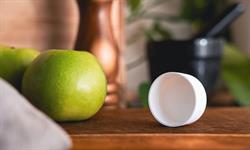 Blue Ocean Closures, sustainable packaging technology startup from Sweden, has announced its innovation-focused partnership with Coca-Cola’s EMEA R&D Center. For its part, Coca-Cola said it is joining Blue Ocean Closures’ community of pioneering partners to support its World Without Waste strategy. Blue Ocean Closures is promoting its fiber-based packaging screw cap that is bio-based and as recyclable as paper.[Image Credit: © Blue Ocean Closures]
Blue Ocean Closures, sustainable packaging technology startup from Sweden, has announced its innovation-focused partnership with Coca-Cola’s EMEA R&D Center. For its part, Coca-Cola said it is joining Blue Ocean Closures’ community of pioneering partners to support its World Without Waste strategy. Blue Ocean Closures is promoting its fiber-based packaging screw cap that is bio-based and as recyclable as paper.[Image Credit: © Blue Ocean Closures]
CORPORATE ACTION: Henkel
Henkel Proposes Sustainable Packaging Solutions For Circular Economy
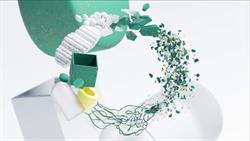 Henkel Adhesive Technologies presents five sustainable packaging solutions designed to contribute to the circular economy. These innovations include debonding for recycling processes that are designed appropriately to material being used, adhesive solutions as replacements for plastic packaging, and bio-based adhesive for environment-friendly food packaging. Also, the Technomelt Supra PS Hotmelts adhesive solution is designed to replace plastic films in palletizing goods being transported. By partnering with cyclos-htp Institute, the company has achieved its sustainability goals faster.[Image Credit: © Henkel AG & Co. KGaA]
Henkel Adhesive Technologies presents five sustainable packaging solutions designed to contribute to the circular economy. These innovations include debonding for recycling processes that are designed appropriately to material being used, adhesive solutions as replacements for plastic packaging, and bio-based adhesive for environment-friendly food packaging. Also, the Technomelt Supra PS Hotmelts adhesive solution is designed to replace plastic films in palletizing goods being transported. By partnering with cyclos-htp Institute, the company has achieved its sustainability goals faster.[Image Credit: © Henkel AG & Co. KGaA]
CORPORATE ACTION: Unilever
Unilever Announces Winners Of Second Life Pakistan Sustainability Competition
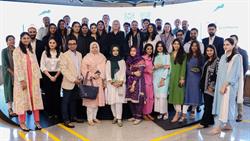 Unilever Pakistan has announced the winners of the company’s 2nd Life Pakistan plastic recycling competition. According to the company, Bigger Bricks won the Acceleration category of the competition, while a research team from the Aga Khan University won the Research category. Also, the winning teams and exceptional participants will have an opportunity to work with the company on initiatives related to collection, recycling and repurposing of plastic waste.[Image Credit: © Unilever]
Unilever Pakistan has announced the winners of the company’s 2nd Life Pakistan plastic recycling competition. According to the company, Bigger Bricks won the Acceleration category of the competition, while a research team from the Aga Khan University won the Research category. Also, the winning teams and exceptional participants will have an opportunity to work with the company on initiatives related to collection, recycling and repurposing of plastic waste.[Image Credit: © Unilever]
Unilever Nigeria And Wecyclers Seek Ways To Fight Plastic Pollution
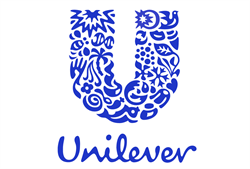
In a partnership that dates from 2014, Unilever Nigeria has renewed its commitment to reducing plastic waste pollution in the country during Managing Director Tim Kleinebenne’s visit to Wecyclers Nigeria Ltd.’s Lagos operations. During the visit, the organizations discussed ways to expand their sustainability efforts through the reduction of plastic pollution.[Image Credit: © Unilever]
Unilever Works With University Researchers On Recycling Flexible Packaging
.jpg&width=250&height=198)
Unilever is working with a team of university researchers on a sustainability packaging project awarded under the pilot Engineering and Physical Sciences Research Council’s Prosperity Partnership program. Department of Aeronautics professor Koon-Yang Lee from the Imperial College will lead the £1 million project, which aims to develop a recycling system for flexible packaging. By partnering with Unilever, Imperial is expanding its Transition to Zero Pollution initiative.[Image Credit: © Nareeta Martin on Unsplash]
Unilever Australia Reveals 90% Of Packaging Is Recyclable, Reusable Or Compostable
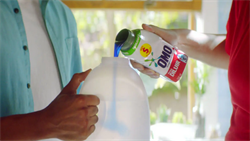 Unilever in Australia has announced its progress towards the goal of packaging that is 100 percent recyclable, reusable or compostable has reached 90 percent. Although consumers may find it difficult to notice, the company said it uses more than 1,200 tonnes of recycled plastic every year in making products sold in Australia. For example, Magnum pint ice cream containers are 90 percent recycled plastic, translating into 45 tonnes of new plastic not entering the market in the country each year.[Image Credit: © Unilever]
Unilever in Australia has announced its progress towards the goal of packaging that is 100 percent recyclable, reusable or compostable has reached 90 percent. Although consumers may find it difficult to notice, the company said it uses more than 1,200 tonnes of recycled plastic every year in making products sold in Australia. For example, Magnum pint ice cream containers are 90 percent recycled plastic, translating into 45 tonnes of new plastic not entering the market in the country each year.[Image Credit: © Unilever]
CORPORATE ACTION: Other
Reposit, City To Sea, Marks and Spencer, Ecover Launch Brand-Agnostic Full Reuse Platform
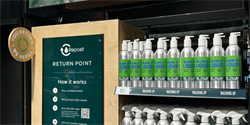 Reposit has partnered with City to Sea, Marks & Spencer and Ecover to demonstrate the scalability of a full reuse platform. With support from the UK Research and Innovation’s Smart Sustainable Plastic Packaging Fund, the platform will accept products from various categories being sold in 200 stores. The program also uses leased standardized reusable containers that consumers can return to stores or send through free home collection. Other brands can register their interest to join the platform by October 30, 2023.[Image Credit: © City to Sea]
Reposit has partnered with City to Sea, Marks & Spencer and Ecover to demonstrate the scalability of a full reuse platform. With support from the UK Research and Innovation’s Smart Sustainable Plastic Packaging Fund, the platform will accept products from various categories being sold in 200 stores. The program also uses leased standardized reusable containers that consumers can return to stores or send through free home collection. Other brands can register their interest to join the platform by October 30, 2023.[Image Credit: © City to Sea]
The Blue Paradox Exhibit Goes To Chicago, Highlights Ocean Plastic
 SC Johnson and Conservation International have brought The Blue Paradox exhibit to the Museum of Science and Industry in Chicago. When the exhibit was launched in London in 2021, it provided visitors with a view of plastic pollution’s impact on the world’s oceans. Highlighting the dual nature of plastic – its usefulness and versatility, and its harmful and destructive impact on the environment. - the exhibit features five rooms that emphasize the crucial role that the ocean plays in daily human lives and how plastic affects it.[Image Credit: © S.C. Johnson & Son Inc.]
SC Johnson and Conservation International have brought The Blue Paradox exhibit to the Museum of Science and Industry in Chicago. When the exhibit was launched in London in 2021, it provided visitors with a view of plastic pollution’s impact on the world’s oceans. Highlighting the dual nature of plastic – its usefulness and versatility, and its harmful and destructive impact on the environment. - the exhibit features five rooms that emphasize the crucial role that the ocean plays in daily human lives and how plastic affects it.[Image Credit: © S.C. Johnson & Son Inc.]
CONSUMER & PUBLIC OPINION
UK Consumers Blame Retailers For Plastic Pollution, Study Shows
.jpg&width=250&height=167) University of Sheffield researchers have learned that UK consumers are “angry at the retail industry” for producing plastic waste. Results of the study, which focused on how language employed by retailers, manufacturers and local governments affects public opinion and behavior regarding reuse and recycling of plastics, also showed that consumers are frustrated with existing reuse and recycling systems. Based on the study’s findings, linguists from the university have developed a guide designed to help industry and councils use language to cut plastic pollution without sounding like greenwashing.[Image Credit: © Magda Ehlers from Pexels]
University of Sheffield researchers have learned that UK consumers are “angry at the retail industry” for producing plastic waste. Results of the study, which focused on how language employed by retailers, manufacturers and local governments affects public opinion and behavior regarding reuse and recycling of plastics, also showed that consumers are frustrated with existing reuse and recycling systems. Based on the study’s findings, linguists from the university have developed a guide designed to help industry and councils use language to cut plastic pollution without sounding like greenwashing.[Image Credit: © Magda Ehlers from Pexels]
PACKAGING REDESIGNS
ALPLA Works With Privatbrunnen TÖNISSTEINER Sprudel To Create Reusable 100% Recycled Water Bottle
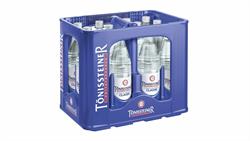 ALPLA has collaborated with mineral water company Privatbrunnen TÖNISSTEINER Sprudel to make a reusable PET bottle made of 100% recycled material. According to the companies, the reusable one-liter bottle is manufactured using less resources and cuts carbon consumption. Also, it offers advantages in terms of logistics due to its reduced weight.[Image Credit: © Alpla]
ALPLA has collaborated with mineral water company Privatbrunnen TÖNISSTEINER Sprudel to make a reusable PET bottle made of 100% recycled material. According to the companies, the reusable one-liter bottle is manufactured using less resources and cuts carbon consumption. Also, it offers advantages in terms of logistics due to its reduced weight.[Image Credit: © Alpla]
POLICY, REGULATION & LEGAL
European Commission Adopts Rules Pushing For More Reuse And Recycling Of Plastic Packaging
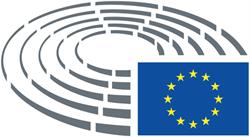 The European Commission’s Environment Committee has adopted proposed regulations aimed at making packaging easier to reuse and recycle, as well as reduce non-essential packaging and related waste, and encourage the use of recycled content. In addition to proposed packaging reductions, the legislators also want to establish specific waste reduction targets for plastic packaging, such as 10 percent by 2030 and 15 percent by 2035. Also, the plastic component of packaging must contain minimum percentages of recycled content, and legislators want to impose a ban on “forever chemicals” in food packaging.[Image Credit: © The European Parliament]
The European Commission’s Environment Committee has adopted proposed regulations aimed at making packaging easier to reuse and recycle, as well as reduce non-essential packaging and related waste, and encourage the use of recycled content. In addition to proposed packaging reductions, the legislators also want to establish specific waste reduction targets for plastic packaging, such as 10 percent by 2030 and 15 percent by 2035. Also, the plastic component of packaging must contain minimum percentages of recycled content, and legislators want to impose a ban on “forever chemicals” in food packaging.[Image Credit: © The European Parliament]
UK Revises Rules To Improve Collection And Recycling Of Plastic
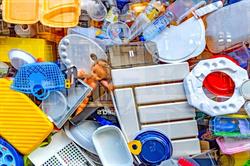 The UK Government has announced reforms aimed at simplifying collection and recycling of waste, including used plastic packaging. By adopting a “simpler, common-sense approach” to recycling, the government expects a standardized recycling policy will encourage consumers across England to recycle the same materials wherever they might be. Proposed reforms also include the introduction of weekly collections of food waste by 2026 and collection of residual waste at least fortnightly.[Image Credit: © djedj from Pixabay]
The UK Government has announced reforms aimed at simplifying collection and recycling of waste, including used plastic packaging. By adopting a “simpler, common-sense approach” to recycling, the government expects a standardized recycling policy will encourage consumers across England to recycle the same materials wherever they might be. Proposed reforms also include the introduction of weekly collections of food waste by 2026 and collection of residual waste at least fortnightly.[Image Credit: © djedj from Pixabay]
RESEARCH
Report Sees Gains In Plastic Collection And Recycling Rates In UK
 In the UK, domestic recycling of plastics has jumped to 53 percent, according to the 2022 Plastics Market Situation report from the climate action non-government organization WRAP. Data from the report also revealed that planned increases in recycling capacity will still fall short of what is required for current levels of plastic packaging consumption. The report also noted a transition from rigid plastic packaging to lightweight and flexible plastic packaging in the consumer segment of the market. Also, higher collection rates for plastic packaging was attributed to increased kerbside collection of flexible plastic, rigid plastics, plastic bottles and pots, tubs and trays (PTTs). [Image Credit: © The Waste and Resources Action Programme]
In the UK, domestic recycling of plastics has jumped to 53 percent, according to the 2022 Plastics Market Situation report from the climate action non-government organization WRAP. Data from the report also revealed that planned increases in recycling capacity will still fall short of what is required for current levels of plastic packaging consumption. The report also noted a transition from rigid plastic packaging to lightweight and flexible plastic packaging in the consumer segment of the market. Also, higher collection rates for plastic packaging was attributed to increased kerbside collection of flexible plastic, rigid plastics, plastic bottles and pots, tubs and trays (PTTs). [Image Credit: © The Waste and Resources Action Programme]
Japanese Researchers Detect Presence Of Microplastics In Cloud Water
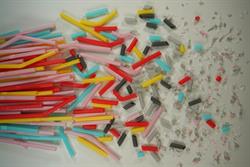 Scientists from Waseda University in Japan, using advanced imaging techniques, have detected the presence of airborne microplastics in cloud water. Results of the study confirmed that clouds contain microscopic pieces of plastic, particles smaller than 5mm, causing scientists to fear that these particles could be contaminating almost everything that humans eat and drink. Earlier research has found connections between these particles and diseases and conditions, such as cancer, infertility and hormone disorders.[Image Credit: © FLY:D on Unsplash]
Scientists from Waseda University in Japan, using advanced imaging techniques, have detected the presence of airborne microplastics in cloud water. Results of the study confirmed that clouds contain microscopic pieces of plastic, particles smaller than 5mm, causing scientists to fear that these particles could be contaminating almost everything that humans eat and drink. Earlier research has found connections between these particles and diseases and conditions, such as cancer, infertility and hormone disorders.[Image Credit: © FLY:D on Unsplash]
OTHER NEWS
Digimarc Implements Recycle Digital Watermarking System Across France
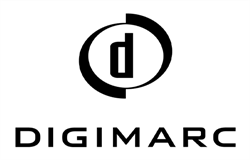 Digimarc Corporation has announced the HolyGrail initiative’s selection of France as the first country for implementation of the Digimarc Recycle digital watermarking system. The system works by linking hidden digital watermarks to cloud-based product information, such as brand and packaging data. Digimarc claims the system improves the sorting of plastic and other packaging materials and upgrades the quality and quantity of recyclates.[Image Credit: © Digimarc Corporation]
Digimarc Corporation has announced the HolyGrail initiative’s selection of France as the first country for implementation of the Digimarc Recycle digital watermarking system. The system works by linking hidden digital watermarks to cloud-based product information, such as brand and packaging data. Digimarc claims the system improves the sorting of plastic and other packaging materials and upgrades the quality and quantity of recyclates.[Image Credit: © Digimarc Corporation]
Copyright 2026 Business360, Inc.

